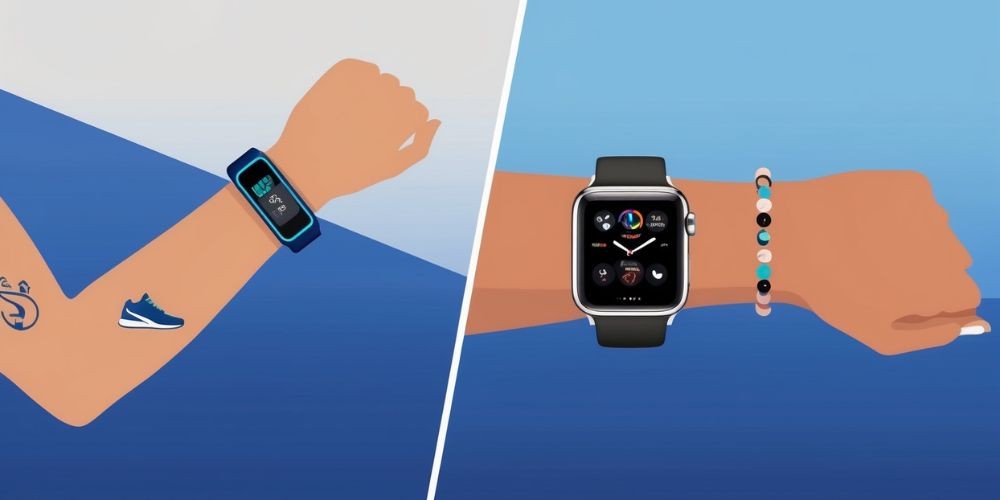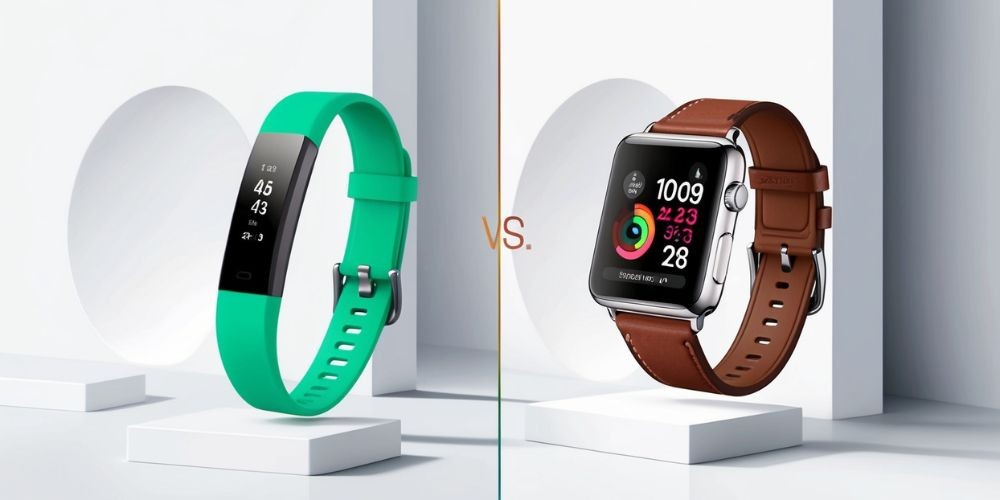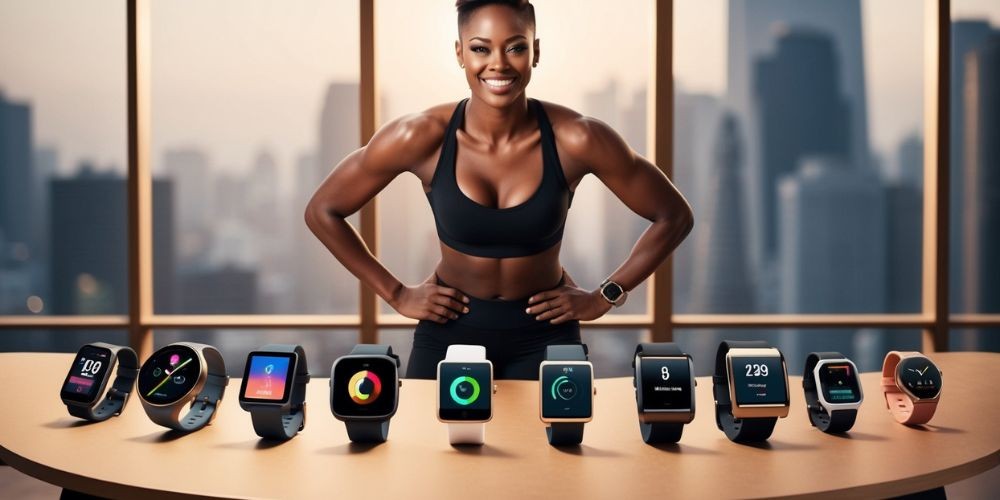Fitness Tracker vs. Smartwatch: Uncovering the Ideal Wearable for Your Lifestyle
Aug-25-2024
Wearable technology has burst onto the scene, transforming how we monitor our health and stay connected. Two primary players dominate this field: fitness trackers and smartwatches. While the distinction between them can sometimes blur, understanding their unique features and functionality can help you choose the best wearable for your lifestyle. In this article, we'll look at how fitness trackers differ from smartwatches, their main applications, popular models, and how to choose which one is best for you.
![]()
The Role of Fitness Trackers: Simplicity and Focused Health Monitoring
Fitness trackers are designed primarily to monitor your health metrics in a straightforward, user-friendly manner. Typically lightweight and often slim, these devices come in various forms, including bracelet and wristband designs. Despite their simple appearance, fitness trackers are packed with sophisticated sensors that track a range of health data, making them ideal for those who want to keep a close eye on their fitness journey.
One of the most common features of fitness trackers is step counting, encouraging users to stay active throughout the day. Moreover, these wearables often offer:
- Sleep pattern monitoring for enhanced rest quality
- Distance tracking for various activities like running, walking, and cycling
- Basic notifications from your phone, such as messages, calls, and emails
Fitness trackers typically sport smaller displays than smartwatches, although many include touch-screen controls for ease of use. Their minimalist design makes them comfortable for all-day wear, and they're generally paired with a dedicated app that organizes your fitness data into helpful graphs and charts.

When it comes to selecting a fitness tracker, the Fitbit Charge 6 stands out as a top choice. It offers advanced health monitoring features, including the Daily Readiness score for Premium subscribers, which assesses your heart rate, sleep, and physical activity to suggest whether you should rest or be active each day. Personalized fitness goals further motivate you to achieve daily milestones, which evolve as you become fitter.
Exploring Smartwatches: Versatile and Feature-Rich Devices
Smartwatches elevate the concept of wearable technology by merging fitness tracking with a wide array of smart features, effectively acting as an extension of your smartphone. These devices offer myriad functionalities that extend beyond health monitoring, making them indispensable for staying connected and productive.
With a smartwatch, you can perform tasks such as:
- Sending text messages directly from your wrist
- Browsing the internet
- Making contactless payments via built-in NFC
- Storing and playing music through Bluetooth-connected headphones

Smartwatches also come in a variety of designs, often more customizable and stylish compared to the utilitarian appearance of fitness trackers. From classic, traditional-watch-like aesthetics to more modern, playful variations, there's a smartwatch to suit everyone's personal style.
For those serious about athletics, sports watches—essentially specialized smartwatches—focus on activities like swimming, cycling, and running. These advanced devices often feature GPS mapping, large displays, and detailed metrics for specific sports activities.
The Garmin Venu 2S exemplifies the capabilities of a top-tier sports watch. This device tracks numerous fitness metrics, such as calories burned and step count, and includes the unique "Body Battery" feature. By measuring various factors like blood oxygen, hydration, sleep, and respiration, it advises you on the optimal times for exercise and rest. Plus, it supports a multitude of activities, from hiking and running to yoga and climbing.
Comparing Features: What Sets Fitness Trackers and Smartwatches Apart
![]()
At first glance, fitness trackers and smartwatches might seem to have similar functionalities, particularly when it comes to tracking health metrics. However, their feature sets diverge considerably upon closer inspection. While fitness trackers excel in precise health monitoring and are perfect for fitness enthusiasts, smartwatches offer an additional layer of connectivity and convenience.
Here are the main features and functions to consider:
- Health Monitoring: Both types of devices track steps, heart rate, and sleep patterns, but fitness trackers usually deliver more granular and specialized health metrics.
- Smart Features: Smartwatches provide a broader range of functionalities, such as notifications, internet browsing, music playback, and mobile payments.
- Design: Fitness trackers often adopt simpler, health-centric designs. In contrast, smartwatches come in a variety of customizable styles, offering both functionality and fashion.
Ultimately, the decision between a fitness tracker and a smartwatch often boils down to your individual needs and lifestyle preferences.
Price Points: Finding Value at Every Budget

Price is an essential factor when choosing between a fitness tracker and a smartwatch. Fitness trackers typically start at a lower price, around £20 to £50 for basic models that track steps and calories. As you move up in price, mid-range options (between £50 to £150) come with additional features like heart rate monitoring, GPS tracking, and smartphone notifications. Premium models boast even more advanced health-tracking capabilities and enhanced design elements.
Smartwatches generally start at a higher price, with good models available from £100 to £200. These offer essential features like notifications and music control along with fitness tracking. Mid-range and premium smartwatches (priced £200 and above) often feature high-quality materials, customizable watch faces, onboard music storage, and integrated NFC for seamless contactless payments.
The key is to determine what features are essential for you and to find a device that offers the best value within your budget.
Making the Decision: Fitness Tracker or Smartwatch?
![]()
Selecting the perfect wearable involves balancing your fitness goals, lifestyle needs, and budget. If you're just beginning your fitness journey and want a straightforward, cost-effective device to keep you on track, a fitness tracker might be the best fit. They're usually more affordable, have longer battery life, and focus on essential health metrics without overwhelming you with extraneous features.
On the other hand, if you're looking for a versatile device that keeps you connected and offers additional conveniences, then a smartwatch would be worth the investment. With capabilities like message notifications, music playback, and contactless payments, smartwatches provide value beyond mere fitness tracking, making them ideal for those who want an all-in-one solution.
Brands like Samsung, Michael Kors, Fitbit, and Garmin offer a variety of fitness trackers and smartwatches to suit different needs and preferences. If you're still uncertain about which wearable to choose, consider consulting a buying guide or visiting a store for expert advice and hands-on comparisons.
In conclusion, whether you opt for a fitness tracker or a smartwatch, both types of wearables come packed with features that can enhance your lifestyle. By understanding their differences and functionalities, you can make an educated decision about choosing the device that best meets your health and connectivity goals.







